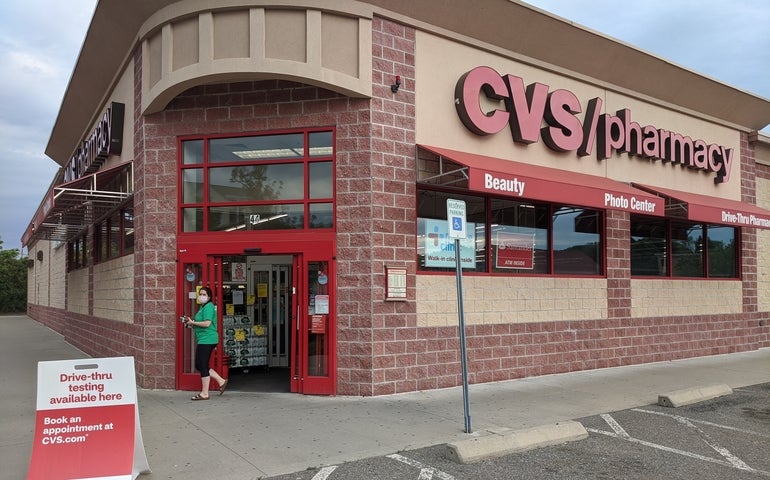A new group of patient advocates, business leaders and independent pharmacists will wade into debate this term over the role of pharmacy benefit managers at a time when prescription drug prices are on the rise.
Taking aim at a topic where lawmakers have been unable to achieve consensus, founding organizations launched the “Patients Not PBMs” coalition on Thursday and said they would work together to press for legislation to subject the industry subset to additional transparency.
Policymakers and regulators have long weighed reforms to oversight of pharmacy benefit managers, which negotiate between drug manufacturers, pharmacies and health plans.
“The time has come to simplify the pharmacy benefit, including reimbursement to pharmacies, and to increase transparency so that PBMs cannot manipulate the system to their own advantage at the expense of employers and patients,” Massachusetts Independent Pharmacists Association Executive Director Todd Brown said in a statement. “By holding PBMs’ feet to the fire, we can do just that.”
Members of the Patients Not Profits coalition include the Cambridge Chamber of Commerce, Lupus Foundation of New England, RARE New England, Diabetes Patient Advocacy Coalition, Patient Pocket Protector Coalition, Institute for Pediatric Innovation, and PhRMA.
Opponents contend that PBMs serve as “middlemen” and drive up overall health care spending — a trend state government has struggled to control — while directing patients toward larger retail pharmacies with which they are aligned.
The new coalition described PBMs as “some of the most profitable corporations that most Americans have never heard of.”
Express Scripts, CVS Caremark and OptumRx collectively control more than 70 percent of the PBM market, according to the Patients Not PBMs coalition, which said the companies “grab tens of billions of dollars in rebates and discounts on medicines that should be passed on to consumers.”
The coalition endorsed four bills. One proposal (H 978) would require health insurers to certify how drug rebates were used. Other legislation the group backs calls for PBMs to be licensed and offer patients a “reasonable” network to access prescription drugs (H 1215), limits the income they can receive from health insurers (H 934) and specifically outlines their job duties (H 1016).
Supporters of the role that PBMs play argue that they can in fact reduce costs by incentivizing patients to use pharmacies with lower drug sale prices.
In recent weeks, the group Save Our Benefits Massachusetts has been running advertisements in Massachusetts newsletters such as POLITICO and MASSterList saying that PBMs “create competition to bring prescription drug costs down.”
CJ Chapman, a spokesperson for Save Our Benefits Massachusetts, said Friday afternoon the coalition is “an organization of regional chambers of commerce, economic development councils, and organized labor focused on ensuring competition within the pharmaceutical industry.”
“At a time when pharmaceutical costs are sky rocketing in Massachusetts, pharmacy benefit managers are the only entities working to push prices lower by forcing pharmaceutical manufacturers to compete while their profits soar,” Chapman said.
The arrival of a the Patients Not Profits coalition pushing for reforms to rein in the role of PBMs comes after legislative efforts around the topic have stalled out.
In two straight legislative terms, the Senate approved a bill aimed at reducing prescription drug costs and subjecting PBMs to new scrutiny, but the House never advanced either measure. Top House Democrats instead sought unsuccessfully to bulk up the regulatory process that larger hospitals face when they try to expand into markets covered by smaller community hospitals.
Legislative leaders have not given any clear indication they are on the same page when it comes to health care reform this session, with House Speaker Ron Mariano and Senate President Karen Spilka each using their inaugural addresses to call once again for action on the issue their individual branch pursued in the past.
Mariano did, however, signal last year that he wants to strengthen the Health Policy Commission with analysts better equipped to analyze prescription drug trends and the role of pharmacy benefit managers.
The HPC itself has called for legislative action to boost its scrutiny of the pharmaceutical sector.

